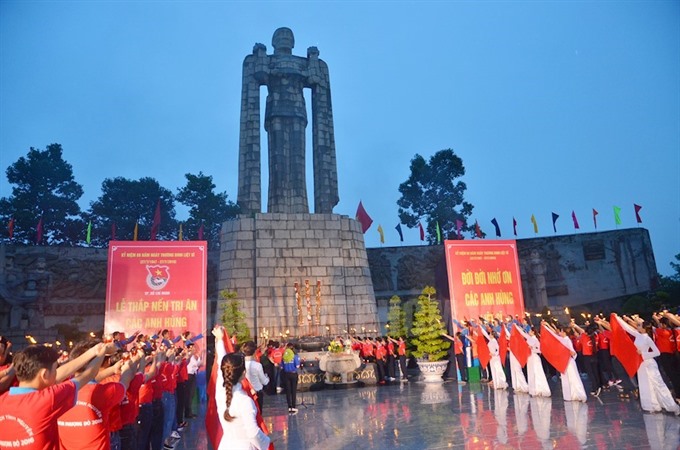 Society
Society

Supercomputers will be deployed to unify databases of different agencies managing information on war invalids and martyrs, significantly reducing time taken to locate documents or determine the identity of remains.
 |
| About 200,000 sets of remains lying scattered across southern provinces, Laos and Cambodia haven’t been collected, while another 300,000 sets of remains that have been reburied in martyrs’ cemeteries lack information to make an accurate identification. — Photo hcmcpv.org.vn |
HÀ NỘI — Supercomputers will be deployed to unify databases of different agencies managing information on war invalids and martyrs, significantly reducing time taken to locate documents or determine the identity of remains.
The unification is a joint attempt by the Ministry of Information and Communications (MoIC), Ministry of Defence (MoD), and Ministry of Labour, Invalids, and Social Affairs (MoLISA) to mark the 70th anniversary of the National War Invalids and Martyrs Day (27/7/1947 – 27/7/2017).
The Policy Department under the MoD currently manages three databases, two on pre-2015 and post-2015 war invalids and martyrs, and one decryption database.
Meanwhile, the National Devotees Bureau under the MoLISA, which manages data on citizens who’ve contributed to the revolutionary cause, has two databases, on pre-2015 war invalids and martyrs, and another on war martyrs, their relatives and war martyrs’ cemeteries (pre-2015).
However, each of these databases has been independently established with its own security measures, and the resultant overlap makes it difficult to cross-check and update information.
The National Institute of Software and Digital Content Industry (NISCI) under MoIC has now been tasked with using supercomputers to standardise and consolidate the existing databases on war invalids and martyrs.
The institute said the trillion calculations and intensive collation involved form an enormous workload that only supercomputers and machine learning technology can tackle.
The information will also be uploaded onto a website that the public can access. The website will not only serve as a unified portal to search for information on war invalids and martyrs but also as a place where people can post information on what they know about war heroes who remain unaccounted for.
Popular social media platforms like Facebook, Zalo (Việt Nam-created chat app plus over-the-top content provider) and others will also be used to promote the website, attracting useful contributions from the public to expand the database.
A test version of the software was executed successfully last month with sample data sourced from MoD and MoLISA.
Concerned agencies have rated the software’s functions as appropriate for tasks related to finding and collecting war martyrs’ remains.
For the website to be made available for public use, full data from the two ministries must be provided, which could only start in the week from July 10-15.
According to labour minister Đào Ngọc Dung, about 200,000 sets of remains lying scattered across southern provinces, Laos and Cambodia haven’t been collected, while another 300,000 sets of remains that have been reburied in martyrs’ cemeteries lack information to make an accurate identification.
Dung was hopeful that the new system will prove successful: “If we continue with the traditional way, going to war martyr cemeteries and check one by one, it will take a really long time. I hope this will no longer be the case with the new system.” — VNS




